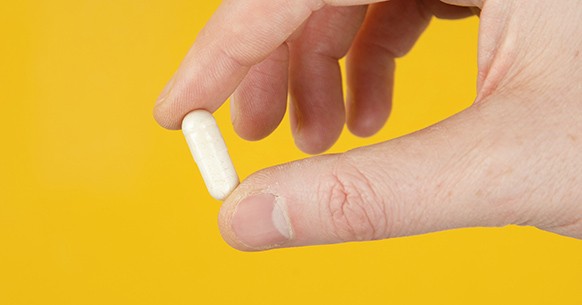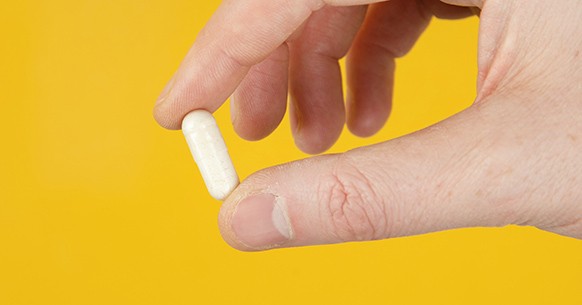
The C vitamin it is one of the essential micronutrients for the human body. Not surprisingly, its importance is taught since childhood: the little ones are in fact suggested to eat fruit and vegetables because, thanks to this substance contained in plant foods, they can grow strong and healthy. Still, everyone knows the usefulness of vitamin C for immune system, so much so that it is one of the most popular natural remedies for the treatment of winter colds.
But what is vitamin C, what are its functions, where is it found and how to take it in case of deficiency from food sources?
Vitamin C: what it is
Also note as ascorbic acid, vitamin C is an essential organic compound for humans. In fact, it contributes to the correct performance of numerous functions of the organism, especially at the cellular level, and is an invaluable ally of the immune system. It is in effect a micronutriente, belonging to the large group of water-soluble vitamins.
The discovery of vitamin C is relatively recent and derives from numerous studies on scurvy, a disease that mainly affected sailors, who had a very poor diet available during the months of navigation. The doctors noticed that, by consuming some plant foods, scurvy regressed spontaneously. So they hypothesized that these plants could contain particular substances and in the 1930s this hypothesis found confirmation in scientific studies.
Unlike most animal species, capable of autonomously synthesizing vitamin C from glucose, humans and primates do not enjoy this ability. For this reason, they must resort toPower supply to adequately compensate the needs of the organism.
Unfortunately, vitamin C is very delicate: it is in fact sensitive to temperature, light and other atmospheric conditions. Precisely since thermolabile, therefore prone to degradation with heat, this vitamin is mainly taken with the consumption of raw plant products. Fortunately, the sources of the micronutrient are very vast within the Mediterranean diet, so much so that the deficiencies of the vitamin are not excessively widespread.
What are the benefits of vitamin C

Vitamin C presents numerous benefits for the body, since its action already takes place at the cellular level. The functions are so extensive that it would be impossible to describe them all, but the most important are:
- Skin: vitamin C is essential for the synthesis of collage, a protein substance that acts as a real skeleton for both the skin and the other tissues of the body;
- Hormones: this micronutrient also contributes to the synthesis of some hormones, necessary for psychophysical balance, such as dopamine and serotonin;
- Fabrics: Vitamin C is an excellent antioxidant, so much so that it is one of the main agents of contrast to the action of free radicals. The latter are responsible for cellular aging, both in the epidermis and in the tissues;
- Heart: the correct daily intake of vitamin C strengthens the walls of the arteries and promotes the normal functioning of the heart muscle, also removing the risk of heart attack;
- Immune system: the micronutrient stimulates the multiplication and action of white blood cells to antibodies, making the body more effective in managing external threats;
- Allergy: Vitamin C is also known to promote the degradation of histamine, reducing not only annoying conditions such as dermatitis or hives, but also intervening in limiting excessive immune responses due to allergens.
Vitamin C deficiency or excess: effects

As already mentioned, vitamin C is taken exclusively with food, since the human body is unable to synthesize it independently. However, depending on the diet followed, the effective ability of the individual to absorb ascorbic acid and some chronic diseases, conditions of deficiency or excess of the micronutrient may occur.
- Vitamin C deficiency: Typical of a diet low in fruits and vegetables, reduced levels of the nutrient can lead to symptoms such as excessive fatigue, apathy, lack of appetite, dry and red skin, hives, bleeding gums, tooth loss, muscle aches and less resistance to infections;
- Excess of vitamin C: Excess, on the other hand, manifests itself with impaired renal function, persistent diarrhea, gallstones, digestive difficulties, cramps, dizziness, difficulty concentrating and fainting.
As a rule, a diet based on Mediterranean diet it guarantees all the nutrients the body needs, including vitamin C. Before any compensation intervention it is necessary, in any case, to evaluate the opinion of your doctor.
How to take vitamin C

As already explained, man is not able to independently synthesize ascorbic acid, it must therefore be introduced into the body through food. But how to take it to increase the levels available, perhaps in the presence of a serious deficiency? There are two main modes:
- Fruits and vegetables, as they represent the primary source of the micronutrient;
- Supplements, both over the counter and prescribed by the doctor, to compensate where nutrition is not sufficient.
What is the daily requirement of ascorbic acid

Taking vitamin C is a daily necessity that cannot be avoided. But which is the daily requirement recommended for this type of micronutrient?
As a general rule, a healthy adult body should take the following amounts every day:
- Men: about 90 milligrams per day;
- Women: about 70 milligrams daily.
Which is the best vitamin C supplement

The vitamin C supplements are becoming more and more popular, also thanks to the popular tradition that sees in the nutrient the main solution to colds. So capsules, tablets and powders are available to add to your normal diet.
However, it is difficult to say which is the best vitamin C supplement available on the market today, if not limited to the individual categories. For example, the water-soluble tablets they have proved to be particularly effective in increasing the absorption of the vitamin, as it is dissolved in water. Then follows the dust, also to be dissolved in the water, as well as the tablets.
However, it should be emphasized that a vitamin C supplement should always be examined in consultation with the doctor, also to avoid overdose and the annoying effects that follow
When taking supplements

However, many are wondering when to take supplements of vitamin C, to maximize absorption. For example, does this vitamin have to be taken before or after meals? At what time of day to take advantage of this recharge of energy and protection?
Fortunately, there is no time of day not recommended to recharge the body with vitamin C. The supplements can in fact be taken before a meal or, alternatively, after lunch and dinner.
However, it is not recommended to combine it with very hot food, as a thermolabile micronutrient: the heat of the ingested dishes could invalidate the absorption of vitamin C both in the stomach and intestines. Still, vitamin C pushes up the reserves of ferro, particularly through plant sources of non-heme iron, so care must be taken to avoid excessive accumulation of the mineral.
Foods rich in ascorbic acid

In popular tradition, theOrange and citrus fruits are seen as the foods with the highest vitamin C intake. However, although their content is more than appreciable, there are foods that offer more than interesting possibilities.
Among these we suggest the Japanese plum, theacerola, the pepper, the kiwi, spinach, Brussels sprouts, strawberries, the rocket salad and many more.
In any case, before proceeding with self-medication, it is necessary to evaluate the opinion of the nutritionist, to make sure that the choice does not interfere with the absorption of other nutrients. For serious situations, the trusted doctor instead, they may prescribe highly concentrated vitamin C, available in drug form.
